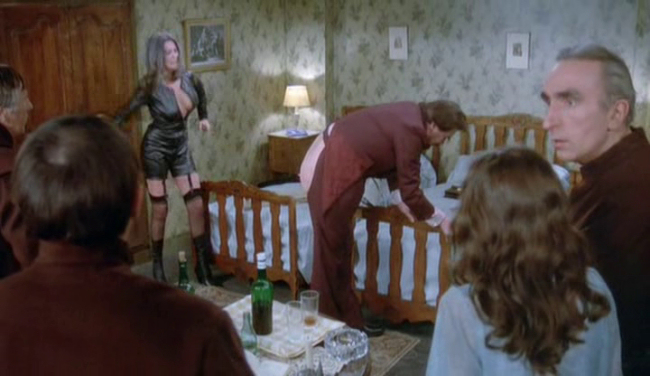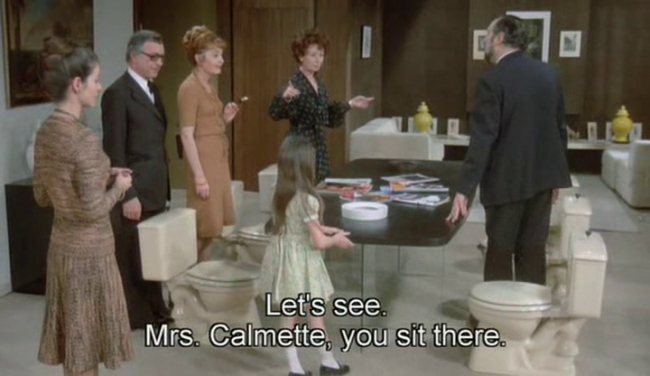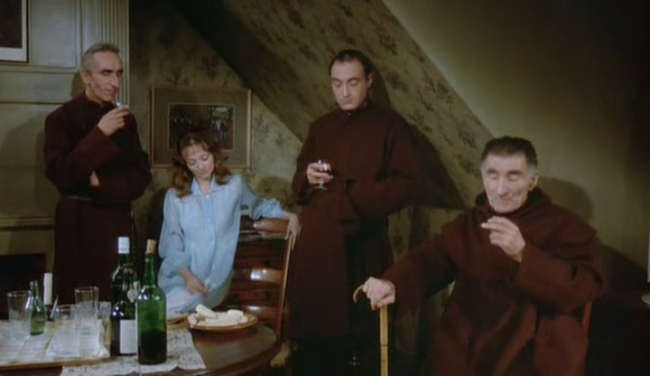
What is real freedom? It is simultaneously impossible and inevitable, or so I would say after viewing Luis Bunuel's 1974 film The Phantom of Liberty (Le Fantôme de la liberté). It's a brilliant depiction of the existential idea of humans being doomed to free will colliding with the endlessly unpredictable forces of chance and complexity.
In the middle of the film, a professor tries to teach a class of military personnel about Margaret Mead and cultural relativism, how everyone is someone else's barbarian. He tries to tell them how order is a cultural construct but he's constantly interrupted by pranks played by the students and by orders calling students away from the classroom. It's amusing how the situation illustrates his lesson while showing the limits of its usefulness.

The film has a lot of characters in brief, connected vignettes, many of them finding humorous ways of illustrating how we're constrained by social custom. In one scene, a group of people sit down on toilets together and one man excuses himself to eat in a private room, nicely making the point that it's due to an ancient social hangup that one thing is considered private and the other something that can be done communally.

A more haunting, as well as funny, episode has two parents trying to find their missing daughter, accompanied by the missing daughter. "I'm here," says the child to the mother when the parents come to the classroom where they've been told the child was first noticed missing. The mother shushes the child because the adults are engaged in the important business of how the teachers' negligence has caused them to misplace the daughter. They go to the police station to report the child missing and the inspector thanks them for bringing the child along because "it makes things easier" for the police when getting a description of the child to distribute among the police carrying out the search.

The parents are apparently unwitting in their complicity in the wheels of law and custom, forcing them to go through a completely useless exercise, and yet they must be absolutely free in order to carry on in spite of the child's obvious presence.

There's also chance, bluntly illustrated by a sniper randomly shooting people from a tall building. And Bunuel is playing with the basic mechanics of storytelling, particularly in a brilliant sequence involving a police commissioner and his dead sister. It's a sequence that relies on inevitable audience presumptions that demonstrates how well our brains are fixed on certain tracks.

There's a beauty in the film's dreamlike, elegantly simple illustration of the human experience. It's strange because with such a thoroughly surreal language one might expect the overall work to be cold even if it was funny. But there's a humanist grace in the way it lays bare the vulnerability of human beings to themselves and to nature.

No comments:
Post a Comment